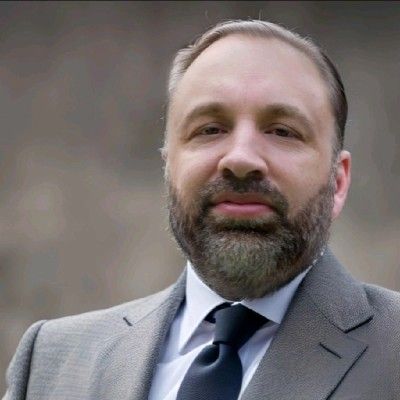- Center on Health Equity & Access
- Clinical
- Health Care Cost
- Health Care Delivery
- Insurance
- Policy
- Technology
- Value-Based Care
How AI Can Address the Troubled Business Model in Oncology
Artificial intelligence (AI) will transform community oncology, addressing workforce shortages and reimbursement challenges while enhancing patient care and operational efficiency, discussed speakers at Tennessee Oncology's “Tech Innovations in Community Oncology."
Flatiron Assist. LeanTaas. DeepScribe. Most US oncologists were years into practice when these technology companies took their first steps, starting about 15 years ago—the same year the Affordable Care Act (ACA) was adopted.
This new law offered hope that more patients might gain access to cancer care, and more cancers would be caught early, thanks to a provision that required free screenings. There were other hopeful signs. The year 2010 brought trial results for a new therapy, ipilimumab (Yervoy; Bristol-Myers Squibb), which would launch the immunotherapy revolution.
Image credit: Canva Illustration | Mary Caffrey

Finally, the ACA advanced goals of an earlier law, the Health Information Technology for Economic and Clinical Health (HITECH) Act, that called on practices to adopt electronic health records (EHRs), which would gather data needed for the shift from fee-for-service to value-based care. Yet, the rise of health IT created different challenges, as popular systems did not integrate well with outside technology, and physicians found themselves staring into screens instead of focusing on patients.
Fast forward to 2025, and much of cancer care is transformed. For some patients, chimeric antigen receptor (CAR) T-cell therapy can knock down cancer in one blow. Navigators help patients manage their treatment journey, and palliative care offers a better quality of life. But other indicators point to a cliff, as independent practices absorb years of reduced Medicare payments, threats from 340B hospitals, and a growing workforce crisis. The median age of US oncologists is 53 years, and the American Society of Clinical Oncology (ASCO) reports 3 in 5 oncologists have symptoms of burnout. ASCO data suggest the country is already short more than 2000 oncologists and hematologists, and estimates of the shortage of oncology nurses run from 200,000 to 450,000.
How can oncology practices respond? How can they adapt to share the gains of the past decade with more patients, with fewer clinicians than they need?
Artificial intelligence (AI) may offer solutions. As seen at this year’s ASCO annual meeting, advances in precision oncology and AI promise to save time and bring consistency from diagnostics to decision-making. Some 16 years after the HITECH Act fueled the boom in data collection—aided by the 21st Century Cures Act in 2015—use of data has matured and is creating a new wave of innovation beyond the walls of academia.
Samyukta Mullangi, MD, MBA | Image: Tennessee Oncology

Larry Bilbrey | Image: LinkedIn

Jeff Patton, MD | Image: OneOncology

Clinical uses of AI are just the beginning. Platforms that can help community oncologists improve both revenue management and workflows—even writing a medical note—are gaining notice. Tennessee Oncology offered a window into this future on June 19, 2025, with the meeting, “Tech Innovations in Community Oncology.” Cochairs were Samyukta Mullangi, MD, MBA, senior medical director at Thyme Care and medical oncologist at Tennessee Oncology; and Larry Bilbrey, senior director of digital innovation at OneOncology; the event was presented with Don Sharpe of Oncollogee at The Hermitage Hotel in Nashville, Tennessee.
“Artificial intelligence is no longer just a buzzword,” Mullangi said. “It is rapidly becoming a very practical tool in oncology, whether that is early detection and diagnosis or personalized treatment plans and clinical trial matching.
“To date, the conversation around AI and oncology has been limited to academic medical centers,” she continued. “So, we're shifting the spotlight to where the majority of patients with cancer are treated in this country, which is community practices.”
Keynote speaker Jeff Patton, MD, CEO of OneOncology, of which Tennessee Oncology is a founding practice, discussed what’s at stake and how AI offers hope. To offer an example, Patton volunteered that he had created his slides with ChatGPT.
Community oncology faces 2 broad challenges, Patton said. “How do we get paid to do what we do, and how much do we have to pay our support staff and for the things around us to take care of patients? Both of these are going in the wrong direction.”
Using data from the American Medical Association, Patton showed how the CMS fee schedule has not only failed to keep pace with inflation but also imposed an outright cut for 2025. Payers key their own reimbursements off CMS, he said, and they use prior authorization (PA) to force practices to spend billions just to get paid. An existing nursing shortage deepened during the pandemic, so staff costs are higher.
Nurses, he said, deserve competitive pay.
“I don't care what business you're in—you want to have wage increases at least commensurate with the cost of living,” Patton said. With the cost of delivering care rising, “Our business model is in trouble.”
There are operational challenges, too. Burnout is real, he said, exacerbated by staffing shortages that create delays in getting scans read or tests turned around.
AI, Patton said, has the potential to deal with many of these pain points while tackling some of the headaches created by the first wave of health IT. He highlighted 3 platforms that offer distinct solutions:
Flatiron Assist. Tennessee Oncology and OneOncology were among the cancer care leaders that collaborated with Flatiron Health to create this oncology-specific, EHR-integrated decision support tool, which incorporates guideline updates by the National Comprehensive Cancer Network (NCCN). Unlike NCCN, Patton said, rather than offer 8 acceptable options, “we would get it down to 1, so it’s true physician support at the point of care.”
OncoSmart. Patton described how Tennessee Oncology had examined LeanTaas, a well-known tool that optimizes scheduling for patient appointments, such as infusions. But the cost was too high. “LeanTaas was developed for hospitals, and it was crazy expensive,” he said. Instead, Tennessee Oncology collaborated with iClinicalOps to deploy OncoSmart, an EHR-integrated scheduling tool that can also import clinic-specific directives. Use of OncoSmart has helped Tennessee Oncology reduce appointment delays and decrease overtime.
DeepScribe. Ambient clinical listening and documentation, which can generate a medical note based on the physician’s conversation with a patient, is “probably one of the coolest things that’s going on today,” Patton said.
AI offers other possibilities, he said, from uses in simulation labs or online training modules. Patton sees promise in solutions that can generate a PA letter or accurately read scans. And OneOncology was so impressed with the success of a patient-reported outcomes platform by Navigating Cancer that it bought the company. Tempus AI, he said, is using AI to develop new clinical support tools.
In a nod to AI skeptics, Patton acknowledged that his first try at ChatGPT was not a success and that until recently his own knowledge of AI was limited. A year ago, if asked about AI, he replied, “I don't know if I can tell you what it is, but I think it's going to be important.
“I have decided to embrace it, and I'm glad that I'm finally helpful.”
